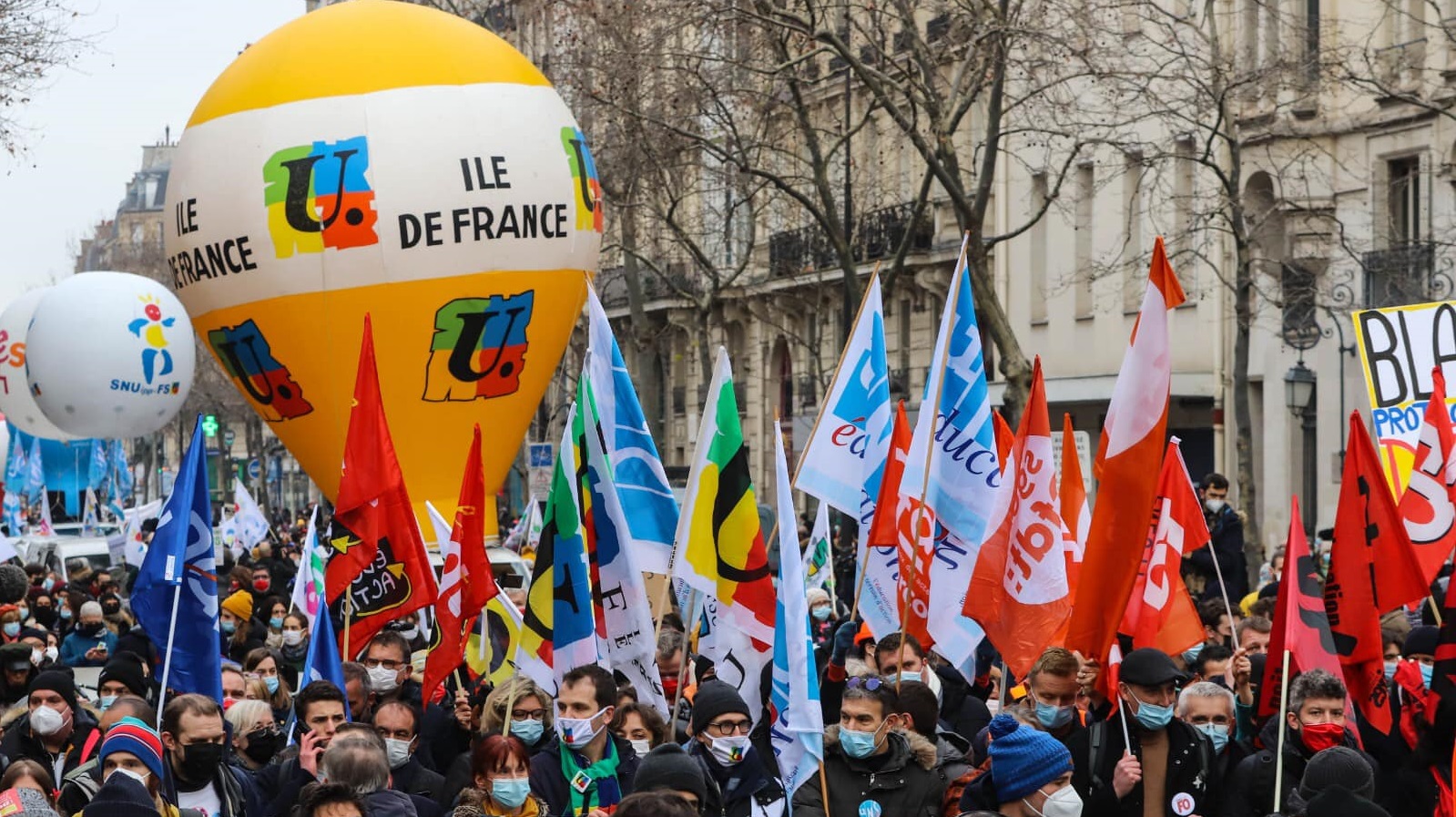Following a historic national strike and mobilizations by school teachers in France on Thursday, January 13, the government conducted talks with representatives of the unions and said they would address their demands. The educators’ wings of various unions such as Fédération Syndicale Unitaire (FSU), National Union of Autonomous Trade Unions (UNSA), General Confederation of Labor (CGT), Workers Force (FO), SGEN-CFDT, Snalc, SNE, Sud Education etc, organized major mobilizations on Thursday in Paris and a number of other cities protesting the mishandling of the COVID-19 pandemic by French authorities. The teachers were unhappy at the frequently changing rules instituted by the government and were demanding better safety measures for themselves and students.
On Thursday, at many places, school nurses, maintenance staff and parents joined the teachers in protest marches. Unions said that 75% of primary school teachers and 62% of middle and high school teachers joined the strike though official sources provided lower figures.
Following the mass mobilization, during the discussion between the teachers’ union representatives and the French Prime Minister Jean Castex, Education Minister Jean-Michel Blanquer and Health Minister Olivier Véran, the government agreed to soon distribute five million FFP2 masks to teachers, mainly among those who work with children too young to wear masks. The government also promised to immediately recruit 3,300 contractual staff to replace those who are absent due to illness. It was also agreed to postpone the coming week’s evaluation for first graders, and possibly the Baccalaureate exams scheduled for March. The government also announced that there will be frequent meetings with the unions in order to review the situation at the schools.
In recent times, the education minister, Jean-Michel Blanquer, has been widely criticized by teachers, unions and parents for his strategies to contain the pandemic in schools. The minister once even tried to put the onus of the crisis on the teachers who have been pushed to the brink by overwork and infections. The new testing requirements announced by the Education Ministry for students (announced on the day before schools restarted after the Christmas holidays and changed twice since) was a key aspect that angered the teachers and parents.
CGT Educ’action stated that “Following the discussions with union representatives and the ministers, a few announcements and commitments [have been made] but [they are still too] blurry and way too many missing numbers… very very far from the account and claims of the staff! We will judge the actions. One thing is for sure: a strong mobilization scares the government. It’s up to us to keep the pressure and mobilization to….earn real advances.”
On Friday, the Unitary National Union of Teachers (SNUipp-FSU) pointed out that the historic mobilization of education personnel had forced the government to open the door for initial discussions. “A first in five years! It is now a question of the government responding to the frustration and demands expressed in the strike of Thursday, January 13. To do this, it must engage in concrete discussions both on the secure health framework and on the means necessary to finally redo school and recognize the staff, in particular by a consequent increase in their salaries.”





